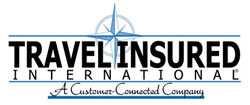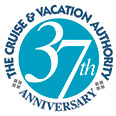What expecting mothers should know
Before You Go
Most cruise lines have restrictions for pregnant passengers, primarily for those in their third trimester (last three months)and some cruise lines may refuse to book you if you are beyond a certain week of your pregnancy. Some cruise lines require a medical certificate or a letter from your doctor stating your term of pregnancy or due date, pre-existing physical or medical conditions, your fitness to travel, and any medications you require while onboard. Pack these in an easy-to-find place, preferably with all your other tickets and documentation.
It is important to verify the issues in question with the cruise line at the time of booking to ensure you dont face difficulties when you arrive at the port.
Once Onboard
Make sure you book a cabin with a large enough bed for your needs, since some cabins may only come equipped with bunk beds or single beds. Be sure to request extra pillows and blankets from the cabin steward, and scout out exit routes and other walkways in the area around your cabin. You should also have a look at your bathroom facilities before you really need to use them, in order to spot any potential problems. You may also want to try on your personal flotation device (PFD) found in your cabin to ensure that it will fit you properly. If you find it is too small then ask the cabin steward for another.
Your main discomfort may be with nausea enhanced by the ships motion. To minimize problems associated with seasickness, try to book one of the larger ships (more than 1,000 passengers). These tend to be more stable and do better in rough weather. They will also tend to have the best range of health facilities and services. Ships with more than 100 passengers will normally be staffed with both a doctor and nurse, but some may only have a nurse. (Note that ships' medical personnel generally charge a fee for their services.)
Make sure to discuss your cruise and related travel plans with your doctor. Before you travel about various seasickness medications and remedies, and which are best to use during pregnancy.
If you take any kind of medication, be sure to have an ample supply for the duration of your cruise. Keep in mind that while most cruise ships carry a reasonable supply of the most widely used drugs, they may not have the particular items you need. Also, in many cases the cruise line policy may discourage dispensing medications to pregnant women.
To avoid border complications you may wish to have a note from your doctor describing your prescription (Generally this will not be an issue.). Passengers with special or exceptional medical needs should contact the cruise line well ahead of time to learn whether the necessary facilities exist on board.
You may also want to check your health insurance coverage and how it will cover you during and after the cruise. If you are uncertain of your coverage, consider purchasing additional travel medical insurance as well. Most cruise lines offer insurance packages that include medical coverage.
Cruiselines' Policies
Carnival - For safety reasons, any guest entering her third trimester (27 weeks or more) of pregnancy will not be permitted to sail, as their ship infirmaries are only equipped for minor emergencies. Infants must be at least four months old to be eligible to travel.
Celebrity will not accept guests who have entered their third trimester (27th week) of pregnancy by the beginning of, or at any time during, their cruise vacation.
Costa - Less than 6 months requires a note from doctor. More than 6 months are not permitted to sail.
Crystal is unable to accommodate children under six (6) months of age and reserves the right to restrict the number of those under three (3) years of age aboard the ship. Crystal Cruises is unable to accommodate women past their sixth (6th) month of pregnancy.
Disney - Women who have entered their 24th week of pregnancy as of their embarkation date will be refused passage due to safety concerns. Neither a physician's medical statement nor a waiver of liability will be accepted. In addition, Disney Cruise Line cannot be held responsible or liable for any complications relating to pregnancy at any stage. Infants under 12 weeks old will not be allowed to travel aboard Disney Cruise Lline ships.
Holland America - Due to the limited medical facilities on the ships, Holland America will not accept reservations for infants 12 weeks or younger and women who will be more than 24 or more weeks pregnant at the time their cruise with Holland America concludes.
NCL - Pregnancy must be regarded as a medical condition. An expectant mother's application for passage must be accompanied by a medical certificate establishing her due date and fitness to travel, and acceptance is subject to the following conditions:
- NCL will not be responsible or liable for any complications of pregnancy which arise or occur during the cruise.
- NCL will not accept passengers who will have entered their 24th week of pregnancy by the time their travel with NCL concludes.
Princess cannot accept passengers who will have entered the third trimester of pregnancy by the end of the vacation. Children under six months are not permitted to travel.
Royal Caribbean welcomes pregnant guests but will not accept guests who will enter their third trimester (27th week) of pregnancy by the beginning of, or at any time during, their cruise vacation.

With each issue of Ultimate Experiences Online, you’ll enjoy a collection of articles, slideshows and videos that we will inspire you to make your travel dreams a reality.

To help you discover ways to explore the world, we're pleased to share our The Travel Magazine Online.
 Save money and escape the crowds. Hot Deals and multi-port packages. Savings of up to 50%!
Save money and escape the crowds. Hot Deals and multi-port packages. Savings of up to 50%!

Our free app that allows you to carry all of the destination information you need while traveling, right in your pocket!

We recommend optional travel insurance that protects you in the event of having to cancel your trip avoiding travel vendor cancellation policies and more!





